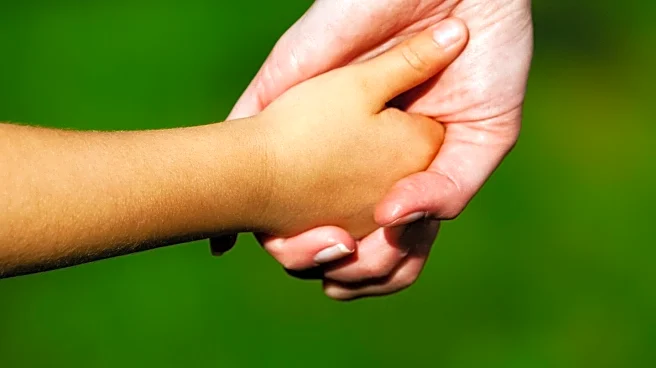What's Happening?
Dr. Gigi Chawla from Children's Minnesota is advising parents on how to effectively manage household chores with their children. The advice comes as many parents struggle with what is termed 'chore wars,'
where children resist participating in household tasks. Dr. Chawla emphasizes the importance of involving children in chores to teach responsibility and teamwork. She suggests strategies such as setting clear expectations, making chores a routine, and using positive reinforcement to encourage participation. The guidance aims to help parents avoid conflicts and foster a cooperative environment at home.
Why It's Important?
The advice from Children's Minnesota is significant as it addresses a common issue faced by families across the U.S. Managing household chores can be a source of tension between parents and children, impacting family dynamics and relationships. By providing practical strategies, Dr. Chawla's guidance can help parents create a more harmonious home environment. This can lead to improved family relationships and teach children valuable life skills such as responsibility, time management, and cooperation. The broader impact includes reducing stress for parents and promoting a positive family culture.
What's Next?
Parents who implement these strategies may see a reduction in household conflicts and an increase in children's willingness to participate in chores. As families adapt to these methods, there could be a shift towards more collaborative and less contentious household management. Children's Minnesota may continue to offer resources and support to families seeking to improve their home dynamics. Additionally, other organizations might adopt similar approaches to assist parents in managing household responsibilities effectively.
Beyond the Headlines
The advice from Children's Minnesota highlights the cultural shift towards more inclusive family dynamics, where children are seen as active participants in household management. This approach not only addresses immediate conflicts but also contributes to long-term family cohesion and the development of responsible adults. It reflects a growing recognition of the importance of teaching life skills at an early age, which can have lasting benefits for society as a whole.











